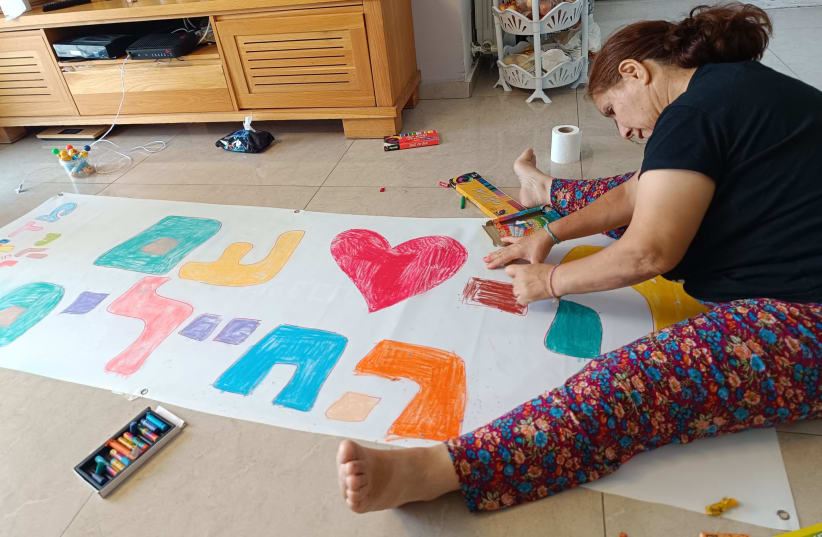In a world that craves routine, individuals with cognitive disabilities often find solace in the predictable. Their reliance on such stability becomes all the more apparent when even minor shifts occur, from altered meals to changing residences.
"Any minor change takes them longer to adjust to. So, ponder what happens during wartime, when sirens blare, and the familiar faces they're accustomed to are suddenly absent, either drafted into the military or worse," Netanel Miller, VP and manager of the Jerusalem region explained.
Shekel, an organization dedicated to the cause, champions the idea that people with disabilities are just like the rest. "They possess similar needs, desires, and emotions. The only difference is they require additional support to integrate into society," asserts Offer Dahary, CEO of Shekel.
So, when the Hamas attack on Israel took place on Saturday, Shekel acted promptly. Miller explains, "As the sirens commenced, our first priority was to ensure each individual knew their way to safety. We always emphasize making emergency protocols accessible to those with cognitive disabilities, praying such dire circumstances never arise."
Normalizing the feelings associated with war
Post this immediate response, the focus shifted to mental wellbeing. Anat Marmor, psychologist and manager of innovative community programs at Shekel, says, "We endeavored to normalize their feelings of anxiety, reiterating that such emotions are universally experienced. Each individual was encouraged to harness their intrinsic strengths, and we tailored our information about the ongoing conflict to align with their cognitive comprehension."
But how to create a semblance of the routine they so deeply cherished? Marmor offers, "We devised a structured plan, including recreational activities, three meals a day, and physical exercise. Such a regimen instilled a sense of assurance, giving them clarity on what the ensuing days would encompass."
Moreover, Shekel recognized that leisure and meaning-making activities were pivotal. "Whether it's baking cookies for those evacuated or penning down heartfelt messages to our brave soldiers, it grants them a sense of purpose," adds Dahary. "Despite their disabilities, they too can make a difference."
Reiterating the ethos of Shekel, Dahary concludes, "Our mission is clear: assimilating those with disabilities into the community. They aren't merely a part; they face challenges, experience emotions, and demonstrate resilience just like anyone else. This holds, sadly, even during warfare."

